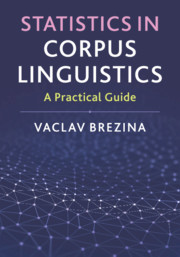Book contents
- Statistics in Corpus Linguistics
- Statistics in Corpus Linguistics
- Copyright page
- Dedication
- Contents
- Figures
- Tables
- About This Book
- Acknowledgements
- 1 Introduction
- 2 Vocabulary
- 3 Semantics and Discourse
- 4 Lexico-grammar
- 5 Register Variation
- 6 Sociolinguistics and Stylistics
- 7 Change over Time
- 8 Bringing Everything Together
- Final Remarks
- References
- Index
Final Remarks
Published online by Cambridge University Press: 14 September 2018
- Statistics in Corpus Linguistics
- Statistics in Corpus Linguistics
- Copyright page
- Dedication
- Contents
- Figures
- Tables
- About This Book
- Acknowledgements
- 1 Introduction
- 2 Vocabulary
- 3 Semantics and Discourse
- 4 Lexico-grammar
- 5 Register Variation
- 6 Sociolinguistics and Stylistics
- 7 Change over Time
- 8 Bringing Everything Together
- Final Remarks
- References
- Index
Summary
- Type
- Chapter
- Information
- Statistics in Corpus LinguisticsA Practical Guide, pp. 283 - 284Publisher: Cambridge University PressPrint publication year: 2018
- 1
- Cited by

